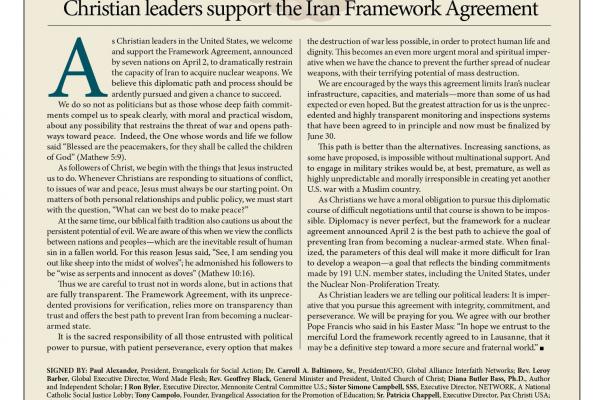This week, more than 50 Christian leaders came together to voice our support for the framework of a Joint Comprehensive Plan of Action between Iran and the P5+1 nations (the United States, the United Kingdom, France, Russia, China, and Germany), concerning Iran’s nuclear program. Sojourners published the leaders’ statement as a full-page ad in Roll Call, a Washington, D.C., political newspaper widely read by members of Congress and their staff.
The statement, signed by leaders from all the major streams of American Christianity — Roman Catholic, evangelical, mainline Protestant, Orthodox, and Pentecostal — is reprinted below. We want to share this letter with you, the Sojourners community, and the broader public. I urge you to prayerfully consider adding your own voice in support of the diplomatic process and share the opportunity with others. Read it, discuss it in your churches, and add your name. This is a historic opportunity for diplomacy to triumph over armed conflict, and as people of faith, you can play an important role in helping the process succeed.
—Jim Wallis, Founder and President, Sojourners
Read the Full Article

